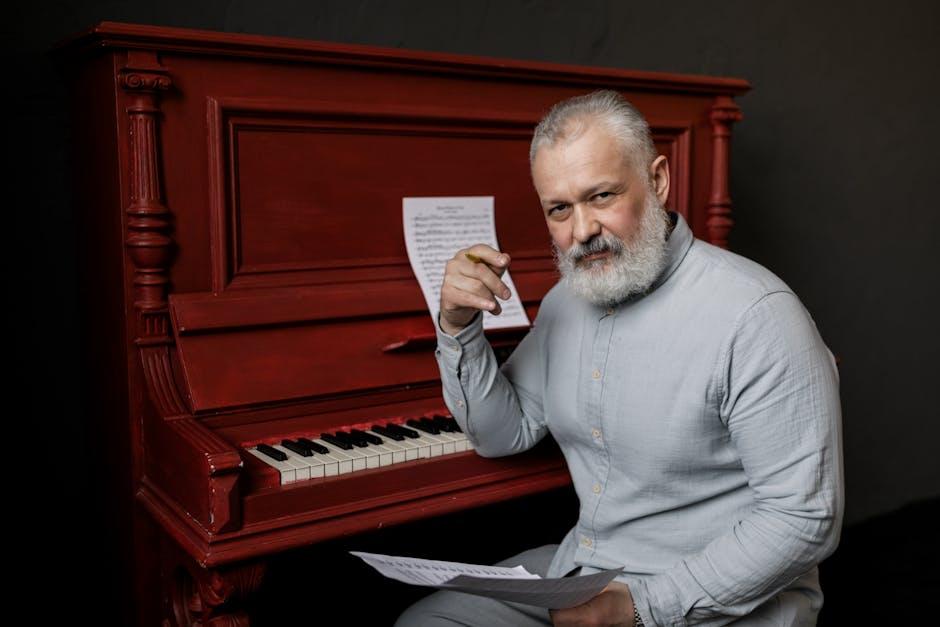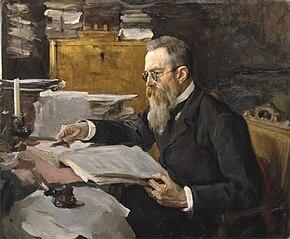In the dim glow of a theater, as the opening credits roll and the first scene unfolds, an unseen force begins to weave its magic. It’s a force that guides emotions, shapes narratives, and breathes life into the visual spectacle on screen. This is the power of the film score, a vital yet often overlooked component of storytelling. While directors, actors, and screenwriters frequently bask in the limelight, film composers work in the shadows, crafting the musical landscapes that elevate a movie from mere images to an immersive experience. But should these maestros of melody receive more recognition for their pivotal role in storytelling? As we explore the intricate dance between sound and cinema, we delve into the heart of this question, inviting a fresh perspective on the unsung heroes of the silver screen.
The Unsung Heroes of Cinema: Understanding the Composers Craft
In the realm of cinema, the work of film composers often operates in the shadows, weaving emotions and atmosphere with the delicate threads of melody and harmony. These musical architects craft scores that transform scenes into visceral experiences, enhancing the narrative without ever stepping into the spotlight. The art of film composition is a complex and nuanced craft that involves much more than just writing music. Composers must possess a deep understanding of storytelling, character development, and emotional nuance to effectively translate the director’s vision into aural form.
- Emotion Amplification: A well-crafted score can elevate a scene, turning moments of silence into profound statements.
- Character Themes: Composers create motifs that encapsulate a character’s essence, providing a musical thread that ties their journey together.
- Atmospheric Depth: Through music, composers add layers of depth, crafting worlds that feel lived-in and authentic.
- Subconscious Storytelling: The score often works on a subconscious level, guiding the audience’s emotions and reactions without overt interference.
Despite the pivotal role they play, composers frequently remain in the background, their contributions overshadowed by the visual elements of film. As we delve deeper into the power of music in storytelling, it’s crucial to acknowledge the intricate artistry and vision these unsung heroes bring to the cinematic experience.
The Emotional Blueprint: How Music Shapes Narrative Depth
Music serves as the unseen architect of emotion within a film, crafting layers of depth that words alone often fail to convey. The subtle rise of a crescendo can transform a simple scene into a powerful moment of revelation, while a haunting melody might linger in the background, embedding itself into the audience’s subconscious. This emotional blueprint is where composers excel, crafting soundscapes that guide viewers through the narrative’s peaks and valleys, often without overt acknowledgment.
- Emotion Amplification: The score amplifies emotions, providing cues that enhance the viewer’s connection to the characters and their journeys.
- Storytelling Cohesion: Music binds disparate scenes, creating a seamless narrative flow that might otherwise feel disjointed.
- Character Insight: Themes and motifs offer insights into characters’ internal worlds, adding layers of complexity to their on-screen presence.
Without the evocative power of music, many films would lose their emotional resonance, underscoring the vital role composers play in storytelling. Their contributions deserve greater recognition, not just as background artisans, but as co-authors of the cinematic experience.

Bridging the Gap: Elevating Composer Recognition in Film Awards
In the intricate tapestry of filmmaking, composers weave the emotional undercurrents that bring stories to life. Their work often transcends mere background music, transforming into a powerful narrative force that guides the audience’s emotional journey. Yet, the spotlight seldom shines brightly enough on these maestros during awards season. Film scores are not just embellishments; they are pivotal storytelling tools.
To truly elevate composer recognition, industry awards could consider integrating more comprehensive categories or criteria that highlight the nuanced contributions of musical storytelling. Some potential approaches include:
- Expanded categories focusing on diverse genres and styles of composition.
- Judging criteria that assess the emotional and narrative impact of a score.
- Collaborative awards recognizing the synergy between directors and composers.
By embracing these changes, the industry could foster a deeper appreciation for the art of film composition, ensuring that composers receive the accolades they so richly deserve.

Harmony in Collaboration: Encouraging Filmmaker and Composer Synergy
In the world of filmmaking, the synergy between directors and composers is a delicate dance that shapes the emotional landscape of a movie. While the director’s vision steers the narrative, the composer breathes life into the story, crafting an auditory experience that resonates with audiences. This collaboration is often overlooked, yet it is pivotal in achieving a harmonious blend of visual and auditory storytelling.
- Creative Dialogue: Encouraging open communication allows filmmakers and composers to align their creative visions, ensuring the music complements and enhances the film’s narrative arc.
- Mutual Respect: Recognizing the unique contributions of each party fosters an environment where innovative ideas can flourish, leading to a more cohesive and impactful final product.
- Shared Vision: A unified goal helps maintain consistency in tone and emotion, creating a seamless viewing experience that captivates the audience.
By nurturing these elements, the film industry can move towards a future where composers receive the recognition they deserve, highlighting their integral role in storytelling.

